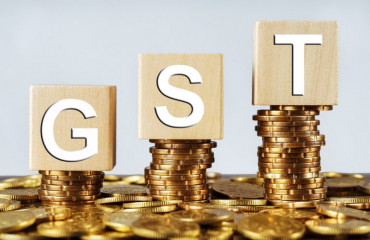
Even as the West grapples with yet another bank failure, with First Republic Bank being acquired by JPMorgan Chase & Co in an emergency government-led intervention, India’s economy seems to be steaming ahead
Even as the West grapples with yet another bank failure, with First Republic Bank being acquired by JPMorgan Chase & Co in an emergency government-led intervention, India's economy seems to be steaming ahead
Even as the West grapples with yet another bank failure, with First Republic Bank being acquired by JPMorgan Chase & Co in an emergency government-led intervention, India's economy seems to be steaming ahead. Revenue from the goods and services tax (GST) hit a new high of ₹1.87 trillion in April, nicely exceeding the recent trend level of about ₹1.6 trillion per month. This buoyancy seems to corroborate optimism in the manufacturing sector, with its purchasing managers' index for April having risen to 57.2 in April from 56.4 in March. Car sales data, also released on Monday, was encouraging too. All these points to our economy charting its own path of growth, largely unruffled so far by a downturn setting in globally. With GST collections in such fine fettle, ₹2 trillion per month doesn't seem far off. This offers the government a chance to carry out some tax reforms. Our GST must reduce complexity. Its rate structure is yet to fulfil its conceptual promises of easy-to-grasp simplicity and immunity from frequent or ad hoc changes, let alone wide applicability, with large categories still taxed separately. India's coffers, meanwhile, must reduce their dependence on indirect levies.
